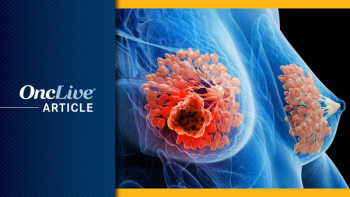
Future Approaches in Breast Cancer
Clinical trials evaluating neoadjuvant therapies for patients with estrogen receptor (ER)-positive breast cancer are essential to further improvements in outcomes, suggests Carlos L. Arteaga, MD. To achieve these goals, there will be a greater need for neoadjuvant trials, as clinicians identify the specific patient populations that need a second drug added to their hormonal therapy.
Collaborative efforts in research have increased patient participation and timely conduct of clinical trials with appropriate biomarkers, states Edith Perez, MD. Knowledge gained through advancements in analytics and diagnostics will help identify epigenetic changes, genes that are being silenced, and evolving clones responsible for dictating resistance, says Debu Tripathy, MD. This information will help direct clinicians to the appropriate combinations of therapy to better individualize treatment for patients.
The androgen receptor is an important new target in breast cancer, comments Joyce O’Shaughnessy, MD, adding that data regarding enzalutamide, an androgen receptor antagonist, in triple-negative androgen receptor—positive breast cancer will be released in the future. There will also be more information regarding mechanisms of resistance in ER-positive breast cancer, such as the transcription factor mechanism of resistance that leads to transcription of HER family members, notes O’Shaughnessy.
Understanding and moving forward with an effective treatment in all arenas of metastatic breast cancer, whether it is triple-negative, ER-positive, or HER2-positive disease, is needed, states Denise A. Yardley, MD. With more information about immunotherapies, clinicians will find a way to integrate a standard with an additional targeted agent, says Yardley.




































